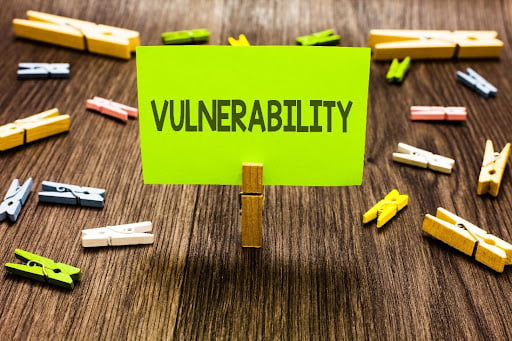Key Highlights:
- We value vulnerability in others, but not in ourselves.
- Psychological safety is one of the strongest predictors of effective teams.
- Courageous, empathic leaders encourage vulnerability.
When was the last time you showed vulnerability at work? Did you feel encouraged and supported by your colleagues and management?
Brené Brown, one of the top researchers in vulnerability, has shown that we value displays of vulnerability in others, but not in ourselves. Why is it that we see others as courageous or brave for talking about their struggles yet we see ourselves as weak for doing the same? If we are really able to bring our whole selves to work it is vital we take a deeper look at vulnerability in our workplaces.
We are not talking here about revealing our innermost secrets or oversharing. Vulnerability at work is about having the courage to be open and honest about how we are feeling, admit when we may be wrong or when we don’t have all the answers. Similarly, being brave enough to push forward our ideas when we are unsure how they will be received. Often, it can feel uncomfortable and risky but can bring so many benefits to us in our personal and professional lives.
What are the benefits to vulnerability?
- Strengthens and develops relationships.
- Leaders become relatable and more approachable.
- Inspires creativity, innovation and staff engagement.
- Staff grow as individuals and feel valued.
- Helps build trust and effective teams.
- Staff care about the success of the organisation.
Leaders within our businesses play a big role when it comes to vulnerability. They have the power to develop a culture where staff can feel safe, unthreatened, where views are respected and discussed. They can facilitate greater connection among team members, ensuring staff don’t fall into the trap of thinking “I’m best off working this out alone”. We are hardwired for connection but have a tendency to withdraw when the going gets tough.
Leaders need to continually work at building trust and psychological safety. If we work in a blaming and shaming culture, we can’t say we are not ok or we’ve made a mistake. Creating this safe environment is probably more challenging now as we adopt hybrid models of working but is even more necessary. It’s easy for staff to become invisible and battle on until crisis point is hit.
We get psychological safetyright when leaders:
- Show clarity
- Are kind and inclusive
- Lean into vulnerability themselves
- Show self-compassion
- Celebrate successes
- Communicate boundaries around disclosure
How can vulnerability be encouraged?
- Leaders modelling vulnerability has a huge impact on staff feeling confident to do the same.
- Why not try…… saying when you don’t know something.
- The environment needs to be right for staff to ‘unmask’. We need to create a psychologically safe culture.
- Why not try…… ensuring everyone’s voice is heard in a meeting.
- Normalise discomfort.
- Why not try …. talking through setbacks as a group. Encourage listening without judgement and accept that the process is likely to be uncomfortable.
- Accept imperfection.
- Why not try ……. naming your last mistake with your team.
- Breakdown any cultural barriers to vulnerability.
- Why not try …… finding out what support looks like across your team.
- Why not try …… finding out what support looks like across your team.
- Leaders modelling vulnerability has a huge impact on staff feeling confident to do the same.
By practicing vulnerability, we can shift from seeing ourselves as flawed to discovering a healthy way to grow, connect and show strength. And when our workplace cultures are supportive and open, we all have the capacity to disarm and bring our authentic selves to work.
Ready to take the next step? Please get in touch to have a chat about how we can help. We’d love to hear from you!
“If we can share our story with someone who responds with empathy and understanding, shame can’t survive.”
Brené Brown

